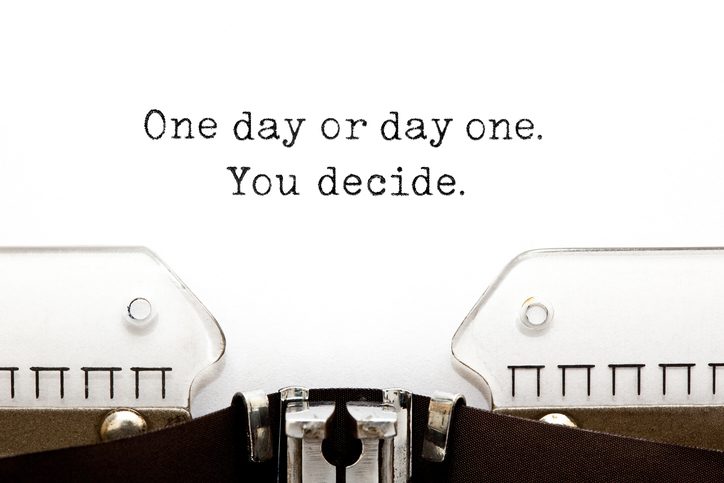As the new year approaches, you may already be thinking about resolutions. Right about now, many people are thinking about new goals for the new year. Some of those goals are realistic. Others are probably not. But either way, this time of year can be a good moment to take a little time to think about your goals and priorities—and how you can emphasize them as another year gets underway.
Of course, if you are a person in recovery from a substance use disorder, your primary resolution is obvious: I resolve to stay sober in the new year.
But as anyone in recovery knows, that resolution is a lot easier said than done sometimes. All sorts of challenges can arise to threaten your sobriety—and those challenges are not necessarily going to be easily overcome by a single resolution.
That is why we think it is a good idea to have several additional resolutions related to your recovery. You could think of them as supporting resolutions because they are intended to support your primary commitment to maintaining your sobriety.
We have five supporting resolutions to suggest.
Resolve to get the Sleep You Need
Many of us burn the candle at both ends. We work long hours. We have family and social obligations. There are chores to do around the house. And we often wind up our days zoned out in front of the television or doomscrolling on a device. Meanwhile, we get far less sleep than is healthy.
There are a number of things you can do to improve your sleep—including developing an evening routine that gets your mind and body ready for sleep. That might involve some light stretching or some reading (though not on a screen) or writing in a journal or listening to soft, pleasant music.
But in the spirit of keeping this resolution simple, you might start with a trick from childhood: Set a bedtime and stick with it.
Resolve to Get More Exercise
Some people love to exercise. Other people loathe it. Many are somewhere in between. No matter where you might fall on that spectrum, the fact remains that exercise supports your physical and mental health—which in turn supports your sobriety.
So it is worth it to resolve to get more exercise in the new year. That does not necessarily mean you have to join a gym. It might just mean resolving to park a little farther from the door and to choose the stairs over the elevator any time you can. Adding two 10-minute walks into your daily routine can make you more productive and can help you feel better both physically and mentally.
Resolve to Eat More Healthfully
Healthy eating is about what you do eat—and also what you don’t eat. Eating plenty of fruits and vegetables as well as lean proteins and complex carbohydrates is a great recipe for better health. Limiting your intake of sugar (which can actually mimic the rush of taking certain drugs), caffeine (which can disrupt your sleep), and processed foods (which tend to be of limited nutritional value) is also an excellent idea.
Eating well is, of course, good for your physical health and—just like exercise and quality sleep—your mental health as well. A healthy body and mind makes it more likely you will be able to make the healthy choice when it comes to avoiding drugs or alcohol.
Resolve to be More Mindful
Do you find yourself replaying the past and worrying about the future so often that it seems as though you are not living in the present at all? It is a common problem—and it can have a negative impact on your mental well-being. That, in turn, is a danger to your sobriety.
The solution is to work on staying mindful, which means to stay focused on the present moment. Mindfulness practice—in which you are encouraged to sit quietly with your eyes closed while focusing on your breathing—is a good way to improve your ability to stay present. Yoga, which might be thought of as a physical version of mindfulness practice, can also help. Regardless of your approach, staying present supports your sobriety.
Resolve to be More Grateful
Recovery is hard. In fact, life in general is hard. It can be all too easy to focus on the difficulties we face rather than the good things in life. But taking a few moments each day to think about what you are grateful for can be a powerful way to support your mental health and ongoing sobriety.
Many people find that listing three things they are grateful for each day is a great way to remind themselves that life—especially a sober life—is a gift. Consider starting your own gratitude journal in the new year.
Most Important Resolution: Get the Help You Need
At Farley Center in WIlliamsburg, VA, we can help you regain your sobriety and provide you with the support and resources you need to maintain that sobriety over time. We can address co-occurring mental health disorders as part of the rehabilitation process, and we are committed to personalized, evidence-based care. If you are struggling with drugs or alcohol, there is one resolution that is more important than any other: resolve to get sober. The dedicated team at Farley Center can help.


